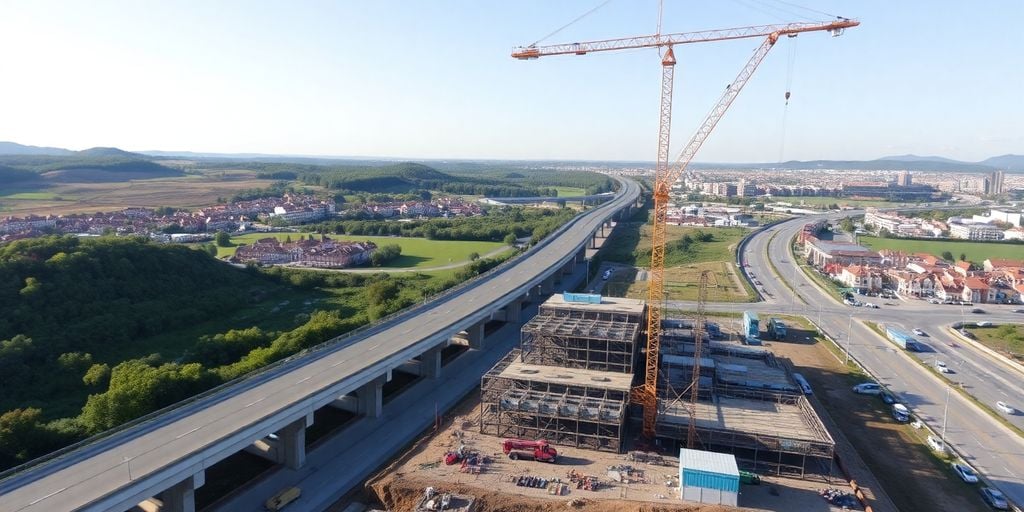North Macedonia has officially entered into a strategic partnership with the United Kingdom, securing a significant investment of €6 billion aimed at bolstering infrastructure and key sectors within the country. This landmark agreement, signed in London, marks a pivotal moment in the bilateral relations between the two nations.
Key Takeaways
- North Macedonia will receive €6 billion in funding from the UK for infrastructure projects.
- The agreement is expected to create thousands of jobs and stimulate economic growth.
- Initial repayments on the loans will not begin until 2027.
- The partnership focuses on healthcare, transport, technology, and energy sectors.
Details of the Agreement
The agreement was signed by Deputy Prime Minister Aleksandar Nikolovski and is touted as a historic investment cycle for North Macedonia. Prime Minister Hristijan Mickoski emphasized that this funding will facilitate an investment revolution, leading to the construction of vital infrastructure such as:
- Railways and highways
- Hospitals and healthcare facilities
- Student dormitories
The UK has become the second-largest investor in North Macedonia, with this agreement expected to further enhance economic ties. The funding will be allocated to various projects, including:
- Railway Corridor 10: Estimated at €2 billion, this project aims to improve connectivity across the region.
- Healthcare Facilities: New hospitals and the reconstruction of existing ones, with an estimated cost of €200 million.
Economic Impact
The financial framework of the agreement is designed to ensure that North Macedonia’s public debt remains manageable. Finance Minister Gordana Dimitrieska-Kochoska stated that the repayment terms will be favorable, with initial withdrawals expected to be around €2.2 billion over the first five years. This translates to an annual increase in public debt of approximately €400 million, which is anticipated to contribute positively to economic growth.
Future Prospects
The first disbursements from the agreement are expected by the end of summer, with construction works projected to commence in early October. The government aims to involve domestic companies in up to 70% of the implementation of these infrastructure projects, fostering local economic development.
Conclusion
This strategic partnership between North Macedonia and the UK not only signifies a substantial financial commitment but also reflects a broader geopolitical strategy to strengthen ties in the Western Balkans. As North Macedonia embarks on this ambitious investment journey, the potential for economic transformation and regional stability appears promising.
Sources
- North Macedonia, UK sign 6 bln euro infrastructure financing deal | N. Macedonia Politics News, SeeNews.
- North Macedonia Forges £5 Billion Investment Alliance With UK, Bloomberg.com.
- North Macedonia, UK to sign strategic pact for 6 bln euro investments | N. Macedonia Politics News, SeeNews.
- North Macedonia is expected to sign a strategic partnership agreement with Britain, A2 CNN.




